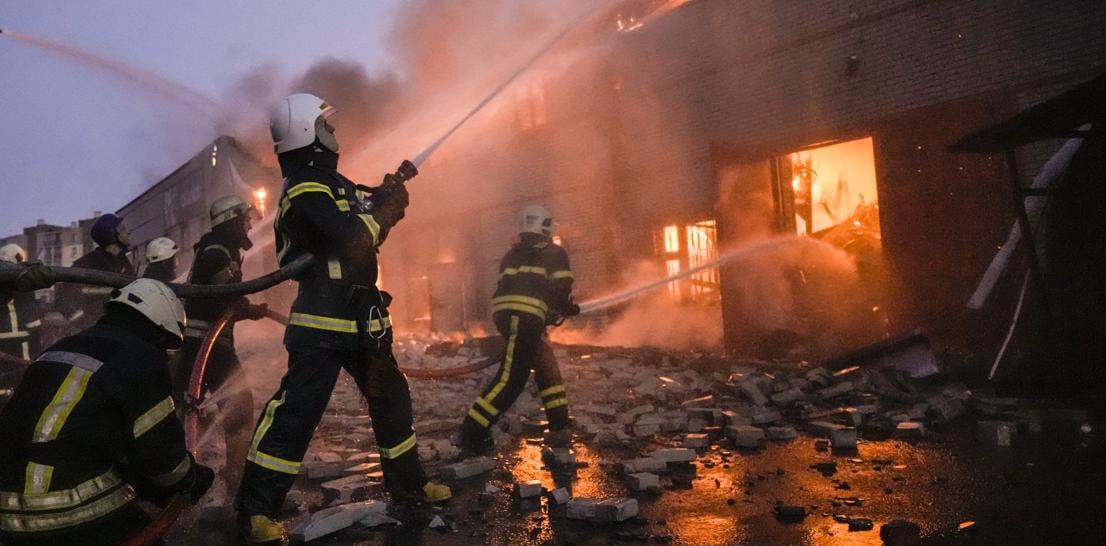US President Joe Biden warns his Chinese counterpart Xi Jinping that he will face “costs” if Beijing saves Putin from Western sanctions established to punish Moscow’s invasion of Ukraine. Today’s phone call between the two leaders, scheduled for 2 pm Italian time, is the first since the November video summit and will be “an opportunity for President Biden to evaluate President Xi’s position,” said White House spokeswoman Jen Psaki. Trade issues will be discussed but the big target is expected to be the Western attempt to force Russia out of Ukraine. US Secretary of State Antony Blinken, however, said he was “concerned about the possibility that China may consider helping Russia”.
Three strong explosions in the airport area in Lviv
Meanwhile, the war continues. After the fire in the market, Kharkiv continues to be hit with heavy shelling and artillery fire. And tonight the sirens started ringing again in other cities, accompanied by the voice broadcast by the loudspeakers that asked citizens to run to the shelters. Many, in the center of Lviv, have come down from their apartments to go and take shelter in one of the numerous ‘shelters’ scattered around the city. Three strong explosions were reported in the area of the civilian airport of Lviv. The mayor of the city, Andriy Sadovy, in a Telegram message said that a structure dedicated to the repair of aircraft was hit, but “there are no victims”, because the activities had been interrupted in recent days. Sirens also rang in the western regions of Rivne, Volyn Ternopil and Ivano-Frankivsk.
Diplomacy at work
“It could take from a few days to a week and a half to find an agreement on the controversial points” in the negotiations between the Russian and Ukrainian delegations. Ukrainian chief negotiator Mykhailo Podolyak says this in an interview with the Polish media. “The signing of a peace agreement will put an end to the acute phase of the conflict, will allow us to honor all those who have been killed and begin the reconstruction of the country. But I doubt that the war will end there for the Ukrainians, not after everything we have been through, ”adds Zelensky’s adviser.
Intelligence Gb: Russia plagued by logistical problems
According to British intelligence analysts, Russia was forced to hijack “large numbers” of troops to defend its supply lines rather than continue its attacks on Ukraine. The UK Ministry of Defense, writes the Guardian, recently released an intelligence report stating that logistical problems continue to plague Russia’s “faltering” invasion of Ukraine. “Reluctance to maneuver across the country, lack of air control and limited linkage capabilities are preventing Russia from effectively supplying its troops with even basic essentials such as food and fuel,” says the British Defense Ministry. in the report. «The continuous Ukrainian counterattacks – he continues – are forcing Russia to hijack a large number of troops to defend its supply lines. This is severely limiting his offensive potential ».
US skepticism
The US sees no evidence of a Russian de-escalation in Ukraine. Russia “is preparing the ground for biological or chemical attacks under false flag,” said US Secretary of State Antony Blinken. “We are concerned that China may consider helping Russia.” According to Blinken, Russia is not making “significant efforts” in the negotiations with Kiev. Worse still: a new report from the Pentagon’s Defense Intelligence Agency, quoted by Bloomberg, stresses that “Vladimir Putin can be expected to come to the nuclear threat against the West if Ukraine continues to resist the Russian invasion. “As this war and its aftermath slowly diminish Russia’s conventional strength,” said Lieutenant General Scott Berrier, director of DIA, the country “will likely rely on its nuclear deterrent to project force on its public at home and in the country. abroad”.
